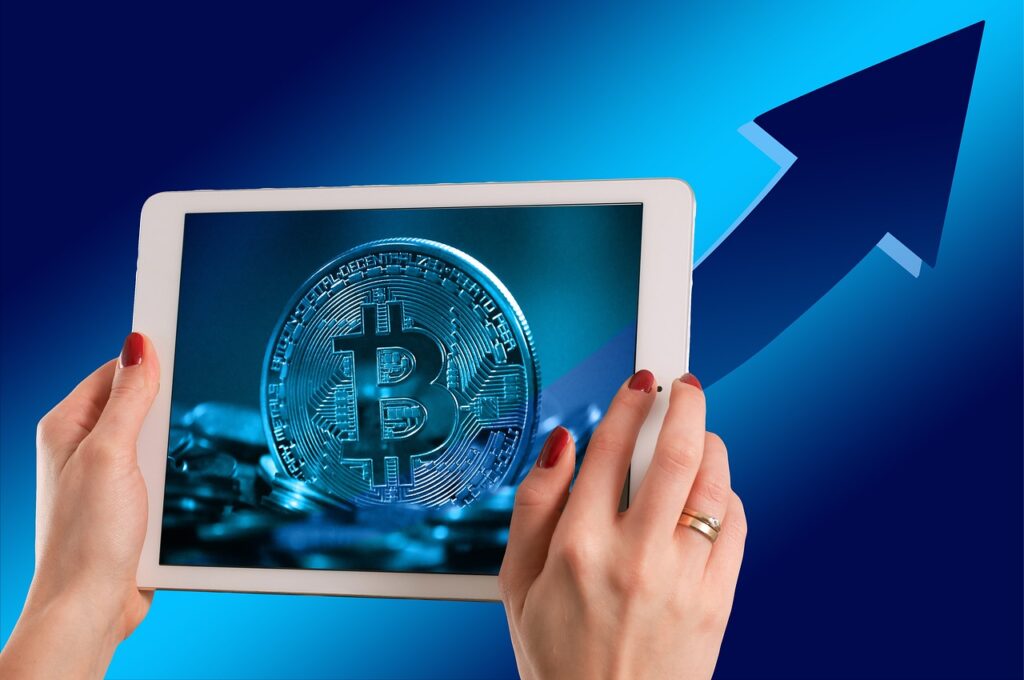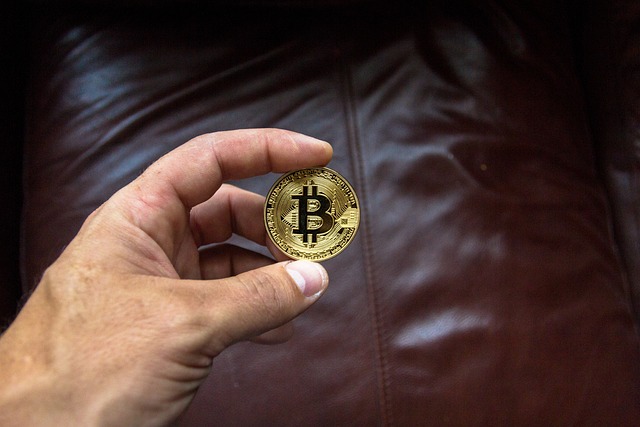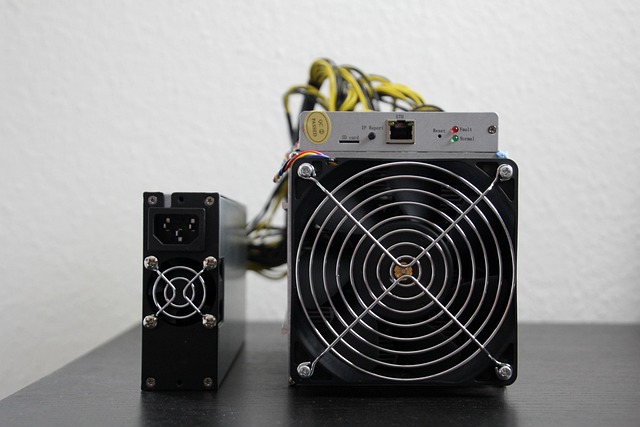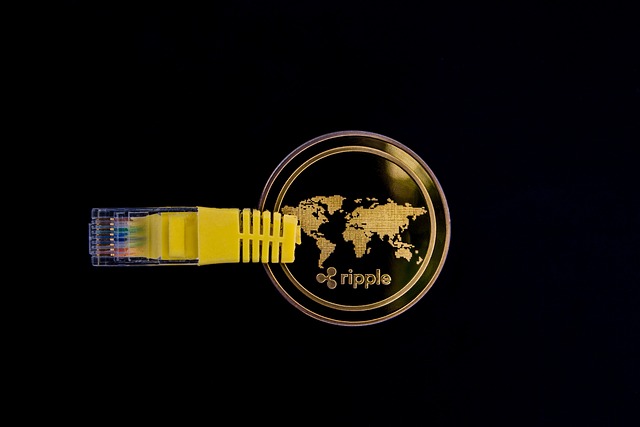DeFi Benefits vs. Traditional Finance: A Comparative Analysis
DeFi Benefits vs. Traditional Finance: A Comparative Analysis

Understanding the Basics: Exploring Decentralized Finance and Traditional Finance
Decentralized Finance, also known as DeFi, is a financial system that operates on a decentralized network like blockchain. Unlike traditional finance, which relies heavily on intermediaries like banks, DeFi allows users to directly interact with financial products and services without the need for a central authority. This means that individuals can lend, borrow, trade, and invest their assets without any third-party involvement.

In contrast, traditional finance is built on a centralized system where banks and other financial institutions play a significant role in facilitating transactions and managing assets. While this system has served us well for many years, it has its limitations. Traditional finance often entails lengthy processes, high transaction fees, and limited accessibility, particularly for marginalized communities. Moreover, the centralized nature of traditional finance exposes users to risks such as hacking, fraud, and censorship. Despite its flaws, traditional finance has been the backbone of our economic systems, providing stability and trust. However, the emergence of DeFi has sparked a new wave of innovation that challenges the status quo and offers exciting opportunities for individuals to take control of their financial futures.
Accessibility and Inclusivity: How DeFi is Making Financial Services Available to Everyone
In the traditional financial system, accessing financial services can be a complex and exclusionary process. Banks require extensive documentation, credit checks, and physical presence, making it difficult for many individuals, especially those in underserved communities, to participate in the global financial ecosystem. However, with the advent of decentralized finance (DeFi), the landscape is rapidly changing, opening up avenues for financial services to become available to everyone.
DeFi leverages blockchain technology, allowing individuals to access financial services from anywhere in the world, without the need for intermediaries or traditional banking infrastructure. This technology eliminates the barriers faced by individuals who may not have access to traditional banking services due to geographical limitations or lack of documentation. With just a smartphone and an internet connection, individuals can participate in various DeFi protocols and access a wide range of financial services, such as lending, borrowing, trading, and investment opportunities. This democratization of finance empowers individuals to take control of their financial future, regardless of their background or location.
Transparency and Security: Comparing the Safety Measures of DeFi and Traditional Finance
Transparency and security are key considerations when comparing the safety measures of decentralized finance (DeFi) and traditional finance. In traditional finance, transparency often relies on centralized institutions such as banks and regulatory bodies, which are responsible for maintaining financial records and overseeing transactions. While this centralized approach can provide a certain level of security, it also leaves room for potential vulnerabilities, such as data breaches or fraud. On the other hand, DeFi offers a more transparent system by leveraging blockchain technology, which enables participants to view and verify transactions in a decentralized manner. This increased transparency reduces the risk of fraudulent activities and fosters trust among users.
When it comes to security, traditional finance relies heavily on the use of central intermediaries and third-party institutions as gatekeepers. These intermediaries are responsible for managing and safeguarding assets, conducting audits, and ensuring compliance with regulations. While these measures provide a level of security, they also introduce a single point of failure and potential vulnerabilities. In contrast, DeFi employs smart contracts, which are self-executing contracts with predefined rules and conditions. By automating transactions through smart contracts, the need for intermediaries is eliminated, reducing the risk of human error, manipulation, and unauthorized access. However, it is important to note that the DeFi space is still developing, and security risks such as coding vulnerabilities and hacking attempts need to be addressed and mitigated to ensure the safety of users’ funds.
Efficiency and Speed: Analyzing the Speedy Transactions in DeFi Compared to Traditional Finance
Decentralized Finance (DeFi) has revolutionized the financial landscape by offering speedy transactions that outstrip those of traditional finance. In traditional finance, the process of transferring funds from one account to another can be time-consuming, often taking several business days. This can be frustrating for individuals and businesses alike, especially when urgent transactions need to be made.

DeFi, on the other hand, leverages blockchain technology to facilitate almost instant transactions. By eliminating the need for intermediaries, DeFi platforms enable direct peer-to-peer transactions that occur within seconds. This allows users to quickly access their funds and execute transactions without unnecessary delays. Moreover, the decentralized nature of DeFi ensures that transactions can be processed around the clock, providing unparalleled efficiency and speed that is unparalleled in the traditional finance system.
Cost-effectiveness: Examining the Lower Fees and Expenses in DeFi versus Traditional Finance
When it comes to cost-effectiveness, decentralized finance (DeFi) has been gaining attention for its ability to offer lower fees and expenses compared to traditional finance. This is primarily due to the elimination of intermediaries and the use of blockchain technology. In DeFi, users have direct control over their funds and can participate in financial activities without relying on traditional banks or institutions. As a result, transaction fees are significantly reduced, leading to cost savings for users. Moreover, with the absence of physical branches and administrative overhead, DeFi platforms can operate at a lower cost, further contributing to the overall affordability of financial services.
In contrast, traditional finance is often associated with higher fees and expenses. Banks, for instance, charge various fees for transactions, account maintenance, and overdrafts, among others. These costs can add up, especially for individuals with limited financial resources. Additionally, traditional financial institutions often require minimum balances or impose penalties for not meeting certain requirements, further burdening customers. The presence of intermediaries in traditional finance also increases the costs, as their services come at a price. While these fees and expenses may be necessary to support the infrastructure and services of the traditional financial system, they can create barriers for people with limited means or those seeking more affordable alternatives.
Global Reach: Exploring the Borderless Nature of DeFi and Its Impact on Traditional Finance
The borderless nature of decentralized finance (DeFi) has brought about a significant impact on the traditional financial system. Unlike traditional finance, which often operates within the confines of national borders and is subject to various regulatory restrictions, DeFi offers a truly global reach. This means that individuals from different parts of the world can access and participate in financial services without the need for intermediaries or approval from centralized authorities. This level of accessibility has opened up a whole new world of opportunities, allowing individuals with limited access to traditional financial services to actively engage in the global economy.
One of the key advantages of the borderless nature of DeFi is the ability to engage in cross-border transactions seamlessly. Traditional finance often involves complex and time-consuming processes when it comes to international money transfers. With DeFi, however, these barriers are eliminated, allowing for quick and efficient transactions across borders. This is particularly beneficial for individuals who rely on remittances or need to access funds in different currencies. By leveraging blockchain technology and smart contracts, DeFi enables individuals to bypass traditional banking systems and directly engage in peer-to-peer transactions, ultimately saving time and reducing costs.
Innovation and Flexibility: Discussing the Cutting-edge Features and Customization Options in DeFi
DeFi, short for Decentralized Finance, has been a pioneer in introducing cutting-edge features and customization options that revolutionize the way financial services are accessed and utilized. One of the notable features of DeFi is its ability to provide users with a wide range of financial instruments and products, tailored to their specific needs and preferences. Unlike traditional finance, where there is a limited set of standardized offerings, DeFi platforms offer flexibility and innovation through smart contracts, allowing users to define their parameters and customize their financial interactions.
Moreover, DeFi platforms empower users to maximize their financial opportunities by leveraging the open-source nature of blockchain technology. This enables developers to build decentralized applications (dApps) on top of existing DeFi protocols, resulting in a continuously expanding ecosystem of financial tools and services. Whether it’s decentralized lending platforms, yield farming protocols, or decentralized exchanges, DeFi provides users with the freedom to choose and experiment with various options. The ability to customize financial interactions not only enhances user experience but also encourages financial experimentation and innovation, fostering the growth of DeFi as an alternative to traditional finance.
• DeFi platforms offer a wide range of financial instruments and products tailored to users’ needs and preferences.
• Unlike traditional finance, DeFi allows users to define their parameters and customize their financial interactions through smart contracts.
• The open-source nature of blockchain technology enables developers to build decentralized applications (dApps) on top of existing DeFi protocols.
• This results in a continuously expanding ecosystem of financial tools and services within the DeFi space.
• Users have the freedom to choose and experiment with various options such as decentralized lending platforms, yield farming protocols, or decentralized exchanges.
• Customization not only enhances user experience but also encourages financial experimentation and innovation within the DeFi industry.
Smart Contracts and Automation: Understanding the Role of Smart Contracts in DeFi and Traditional Finance
Smart contracts have emerged as a game-changer in the world of decentralized finance (DeFi) and traditional finance. These self-executing contracts are written in code and automatically execute contractual agreements without the need for intermediaries. In DeFi, smart contracts play a fundamental role in providing trust and security by eliminating the need for human intervention in various financial transactions. Whether it’s lending, trading, or even insurance, smart contracts enable the automation of processes, making them more efficient and faster than ever before. This automation not only reduces the chances of human error but also eliminates the associated costs and delays, ultimately revolutionizing the way financial services are provided.
What sets smart contracts apart is their ability to operate seamlessly on blockchain networks. This means that the execution of agreements is verifiable and tamper-proof, boosting transparency and trust in financial transactions. In traditional finance, smart contracts have the potential to streamline operations, reduce administrative burdens, and minimize the risk of fraud. From facilitating secure cross-border transactions to automating compliance processes, the use of smart contracts can introduce unparalleled efficiency in traditional financial systems. Furthermore, smart contracts can be programmed to enforce predetermined rules and conditions, allowing for greater flexibility and customization in financial agreements for both individuals and businesses. As technology advancements continue to unfold, the role of smart contracts is likely to expand further, transforming the way we perceive and interact with finance.
Risk and Regulation: Assessing the Regulatory Environment and Risks in DeFi and Traditional Finance
When it comes to decentralized finance (DeFi) and traditional finance, there are significant differences in terms of regulatory environment and risks. In traditional finance, regulations are in place to ensure the stability and security of the financial system. Government bodies and regulatory authorities closely supervise financial institutions, enforcing rules that aim to prevent fraud, money laundering, and other illegal activities. This level of oversight provides a sense of security to users, as they trust that their funds are protected within the framework of established regulations.
However, the regulatory environment in DeFi is still evolving and lacks the same level of oversight as traditional finance. Being built on blockchain technology, DeFi operates in a decentralized manner, meaning there is no central authority governing the platform. While this offers a new level of freedom and accessibility, it also poses challenges in terms of regulation. The absence of a central authority opens the door for potential risks and vulnerabilities, such as hacking attacks, scams, and unreliable smart contracts.

The Future of Finance: Speculating on the Potential Disruption and Integration of DeFi in Traditional Finance
As we contemplate the future of finance, it is impossible to ignore the potential disruption and integration of decentralized finance (DeFi) into traditional financial systems. DeFi has been rapidly gaining momentum, offering an alternative and decentralized approach to financial services. With its emphasis on accessibility, transparency, and efficiency, DeFi has the potential to transform the way we conduct financial transactions and manage our assets.
One can argue that DeFi has the power to disrupt traditional finance by challenging the centralized nature of traditional financial institutions. The ability to access financial services without intermediaries offers individuals more control over their funds and eliminates the need for trust in centralized entities. This newfound financial freedom can lead to greater financial inclusivity, especially for those who are underserved by traditional systems. As DeFi continues to evolve and innovate, it holds the promise of bridging the gap between the unbanked and the formal financial system, unlocking new possibilities for economic empowerment and growth.
What is decentralized finance (DeFi)?
DeFi refers to a set of financial applications and services that are built on blockchain technology. It aims to provide an alternative to traditional financial systems by allowing individuals to access and use financial services in a decentralized and trustless manner.
How does DeFi make financial services accessible to everyone?
DeFi eliminates many barriers that exist in traditional finance, such as the need for a bank account or credit history. Anyone with an internet connection can access DeFi services and participate in various financial activities, such as lending, borrowing, and trading.
What are the advantages of DeFi in terms of transparency and security?
DeFi operates on blockchain technology, which ensures transparency as all transactions and activities are recorded on a public ledger. Additionally, the use of smart contracts in DeFi provides enhanced security by removing the need for intermediaries and minimizing the risk of fraud or manipulation.
How does DeFi compare to traditional finance in terms of efficiency and speed?
DeFi transactions are typically faster and more efficient compared to traditional finance. Traditional finance often involves multiple intermediaries and manual processes, leading to delays and inefficiencies. DeFi eliminates these bottlenecks by leveraging automation and smart contracts to enable near-instantaneous transactions.
Does DeFi offer cost-effective financial services compared to traditional finance?
Yes, DeFi is generally more cost-effective than traditional finance. Traditional financial systems involve various fees and expenses, such as account maintenance fees or wire transfer charges. DeFi, on the other hand, often has lower fees and fewer intermediaries, resulting in reduced costs for users.
How does DeFi’s borderless nature impact traditional finance?
DeFi operates on a global scale without the need for intermediaries or geographic restrictions. This borderless nature allows for seamless cross-border transactions and financial services, potentially disrupting the traditional finance system that has traditionally relied on intermediaries and geographical limitations.
What are some innovative features and customization options offered by DeFi?
DeFi platforms often offer cutting-edge features like programmable money, decentralized exchanges, and yield farming. Additionally, users have the flexibility to choose from a wide range of financial products and customize their investment strategies according to their preferences.
What role do smart contracts play in DeFi and traditional finance?
Smart contracts are self-executing contracts with the terms of the agreement directly written into code. In DeFi, smart contracts automate various financial processes, such as lending or asset trading, thereby reducing the need for intermediaries. Traditional finance is also exploring the potential of smart contracts to streamline operations, improve efficiency, and reduce costs.
Are there any risks or regulatory challenges associated with DeFi and traditional finance?
Yes, there are risks involved in both DeFi and traditional finance. DeFi is still relatively new and has its own set of risks, such as smart contract vulnerabilities and market volatility. Traditional finance also faces risks, including regulatory compliance and systemic risks. Both sectors require regulatory oversight to protect users and maintain market integrity.
What does the future hold for the integration of DeFi in traditional finance?
The integration of DeFi in traditional finance is still speculative, but there is significant potential for disruption and collaboration. Traditional financial institutions are increasingly exploring DeFi technologies and partnerships to enhance their offerings and improve efficiency. It is likely that we will see a gradual integration of DeFi into traditional finance, creating a hybrid system that combines the best of both worlds.
Todays Featured Product:
Buy, exchange and grow your crypto securely with a Ledger hardware wallet, combined with the Ledger Live app. It’s never been easier to keep your crypto safe and accessible. Buy direct from Ledger.com and get todays Special Offers Here.




